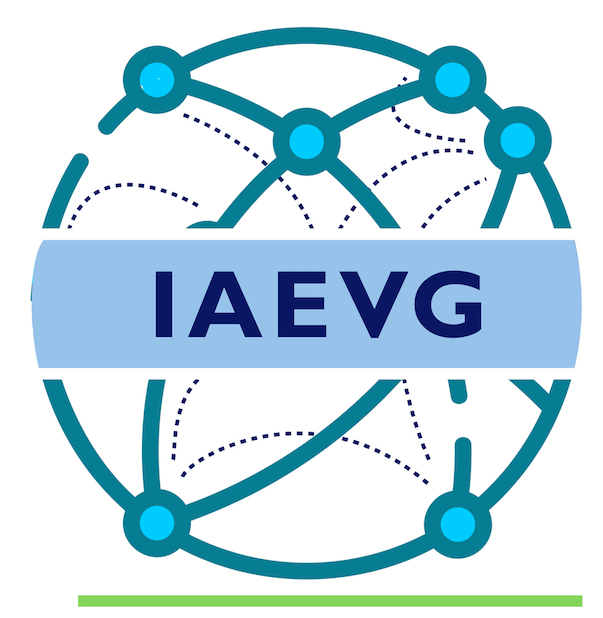International Association for Educational and Vocational Guidance |
- Welcome
- Competencies
 International Competencies for Educational and Vocational Guidance Practitioners
International Competencies for Educational and Vocational Guidance Practitioners
Approved by the IAEVG Board, 18th December 2018
Preamble
Educational and vocational guidance practitioners assist people across their lifespan with learning and work decisions. Educational and vocational guidance practitioners work in diverse settings such as schools, colleges, universities, public employment services, organisations and in private practice. Educational and vocational guidance practitioners provide services to diverse clientele and specialised populations including students, adults, people from indigenous/first nation backgrounds, people with a disability, and people from migrant and refugee backgrounds.
The purpose of the IAEVG Competency Framework is to make explicit the competencies required in order for educational and vocational guidance practitioners to deliver quality services to clients. The competencies were developed on the basis of an international survey conducted in 2003 and revised in 2018. Recognising the wide variation across countries in professional training for, and the roles and functions carried out by educational and vocational guidance practitioners, the IAEVG Competency Framework serves as a resource for practitioners, policy makers and course providers while respecting their context specific needs and circumstances and their autonomy in developing and implementing their own frameworks.
The IAEVG Competency Framework comprises Core Competencies and Specialized Competencies. The Core Competencies are the skills, knowledge, and attitudes required by educational and vocational guidance practitioners regardless of their work setting or specialization. The Specialized Competencies recognize the diverse nature of educational and vocational guidance work in relation to the client groups, work settings, and training of practitioners and reflect competencies that may be required by some, but not all, educational and vocational guidance practitioners.
IAEVG International Competency Framework
The Core Competencies
The Core Competencies (C) are the skills, knowledge, and attitudes required by educational and vocational guidance practitioners regardless of their work setting or specialization.
Educational and vocational guidance practitioners:
|
C1 |
Demonstrate appropriate ethical behaviour and professional conduct in the fulfilment of roles and responsibilities. |
|
C2 |
Demonstrate advocacy and leadership in advancing clients learning, career development and personal concerns. |
|
C3 |
Demonstrate awareness and appreciation of clients’ cultural contexts, concerns and strengths to interact effectively with all populations. |
|
C4 |
Integrate theory and research into practice in guidance, career development, counselling, and consultation. |
|
C5 |
Demonstrate the skills to design, implement and evaluate guidance and counselling programs and interventions. |
|
C6 |
Demonstrate awareness of his/her own capacity and limitations. |
|
C7 |
Communicate effectively with colleagues or clients, using the appropriate level of language. |
|
C8 |
Demonstrate knowledge of updated information on educational, training, employment trends, labour market, and social issues. |
|
C9 |
Demonstrate social and cross-cultural sensitiveness. |
|
C10 |
Demonstrate the skills to cooperate effectively in a team of professionals. |
|
C11 |
Demonstrate knowledge of lifelong career development process. |
|
C12 |
Demonstrate skills and knowledge related to effective and appropriate use of technology. |
The Specialized Competencies
Specialized Competencies (S) recognize the diverse nature of educational and vocational guidance work in relation to the client groups, work settings, and training of practitioners and reflect competencies that may be required by some, but not all, educational and vocational guidance practitioners.
|
S1 Assessment: Analysis of the characteristics and needs of the individual group to whom the program is addressed, and also of the context where they are inserted, including all agents involved. The aim is to integrate and evaluate data from inventories, tests, interviews, scales and other techniques that measure an individual’s abilities, aptitudes, barriers, life roles, interests, personality, values, attitudes, educational achievements, skills and other relevant information. This specialization includes the related but distinct competency of test interpretation, that is, explaining to a client the results of an assessment and their implications. |
|
To demonstrate this Specialized Competency, educational and vocational guidance practitioners:
|
|
S2 Educational Guidance: Assisting individuals to select courses, make educational plans, overcome learning difficulties, and prepare for post-secondary education, training or entry into the workforce. Guidance is often done in large groups, in contrast to counselling which is more often done with individuals or small groups. |
|
To demonstrate this Specialized Competency, educational and vocational guidance practitioners:
|
|
S3 Career Development: Fostering the attitudes, beliefs, and competencies that facilitate mastery of vocational development tasks, the ability to plan and adaptation to work-role transitions over the life-span. It typically uses a developmental model. |
|
To demonstrate this Specialized Competency, educational and vocational guidance practitioners:
|
|
S4 Counselling: Prompting self-reflection to clarify self-concepts, identify options, make decisions, and resolve difficulties. |
|
To demonstrate this Specialized Competency, educational and vocational guidance practitioners:
|
|
S5 Information Management: Collecting, organizing, maintaining, and disseminating information pertinent to education, training, occupations, and employment opportunities; coaching clients in its effective use. |
|
To demonstrate this Specialized Competency, educational and vocational guidance practitioners:
|
|
S6 Consultation and Coordination: Providing information, guidance, and professional advice to parents, teachers, school administrators, and employers who wish to facilitate the educational progress and career development of their charges. Organizing and managing school and community personnel to create referral sources for students regarding programs, services and networks. |
|
To demonstrate this Specialized Competency, educational and vocational guidance practitioners:
|
|
S7 Research and Evaluation: Studying issues related to guidance and counselling, such as learning processes, vocational behavior and its development, values, etc. Examining the effectiveness of interventions. |
|
To demonstrate this Specialized Competency, educational and vocational guidance practitioners:
|
|
S8 Program and Service Delivery and Evaluation: Designing, implementing, supervising and evaluating interventions to address the needs of a target population. |
|
To demonstrate this Specialized Competency, educational and vocational guidance practitioners:
|
|
S9 Community Capacity Building: Encouraging collaboration between community partners to assess human capital and community needs, as well as developing plans to address the economic, social, educational, and employment goals of the community. |
|
To demonstrate this Specialized Competency, educational and vocational guidance practitioners:
|
|
S10 Placement: Supporting individuals in their efforts to obtain occupational positions by teaching job search skills and creating employment opportunities. |
|
To demonstrate this Specialized Competency, educational and vocational guidance practitioners:
|
|
S11 Administration and management of educational and vocational guidance services: Understanding how educational and vocational guidance services work and the needs of client groups in order to customize services for them and evaluating and reporting outputs, impact and quality of the service. |
|
To demonstrate this Specialized Competency, educational and vocational guidance practitioners:
|
|
S12 Marketing and promotion of career and educational guidance with specific emphasis on skills for social marketing: Understanding the potential markets and stakeholders of educational and vocational guidance with a view to promoting it through diverse media channels including social media. |
|
To demonstrate this Specialized Competency, educational and vocational guidance practitioners:
|
|
S13 Working with immigrants, refugees and geographically displaced persons: Recognising the impact of international migration for individuals, families, communities, and countries and understanding the role of educational and vocational guidance in assisting immigrants, refugees and geographically displaced persons to successfully resettle in their destination countries. |
|
To demonstrate this Specialized Competency, educational and vocational guidance practitioners:
|
|
S14 Policy development and implementation: Recognising and understanding the relationship between educational and vocational guidance practice and its contribution towards public policies in education, labour market, and social inclusion, advocating for, developing, and implementing inclusive and culturally grounded educational and vocational guidance policy and practice. |
To demonstrate this Specialized Competency, educational and vocational guidance practitioners:
|

